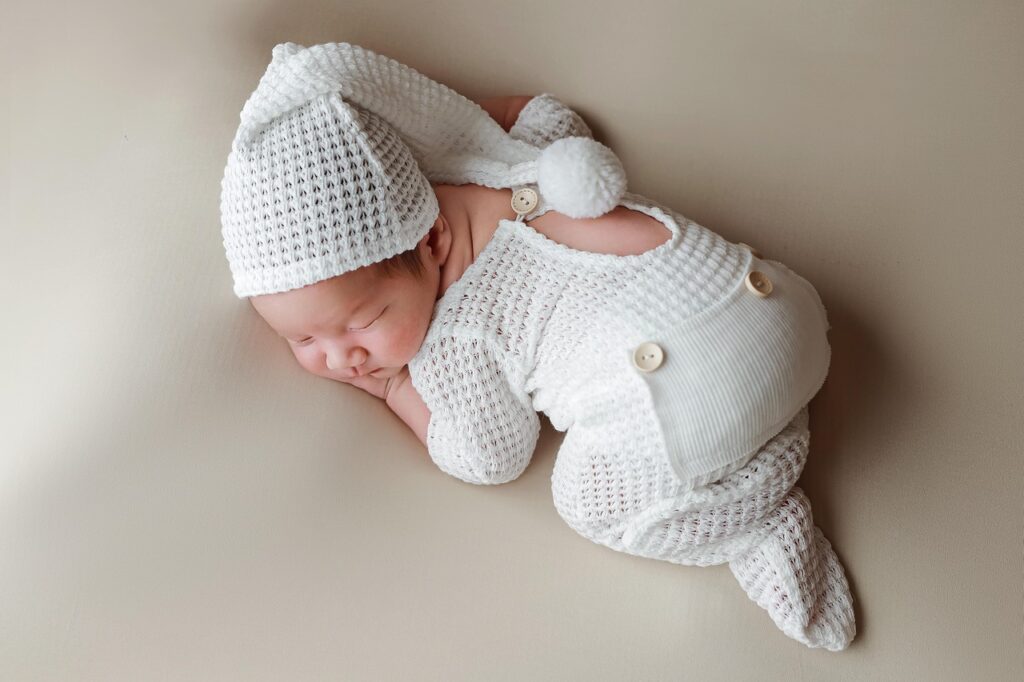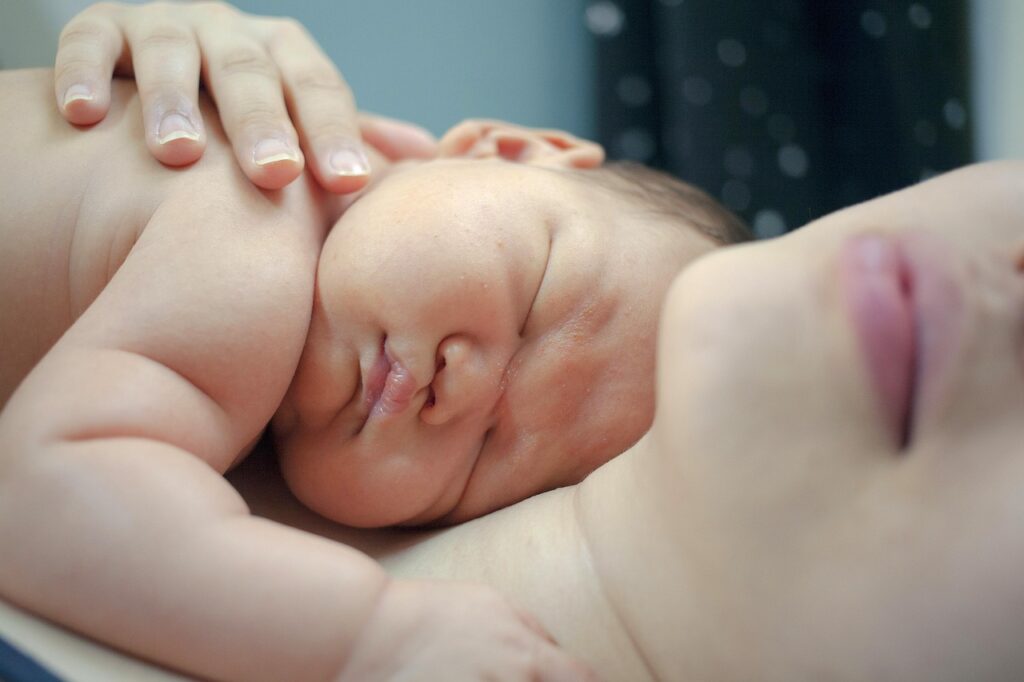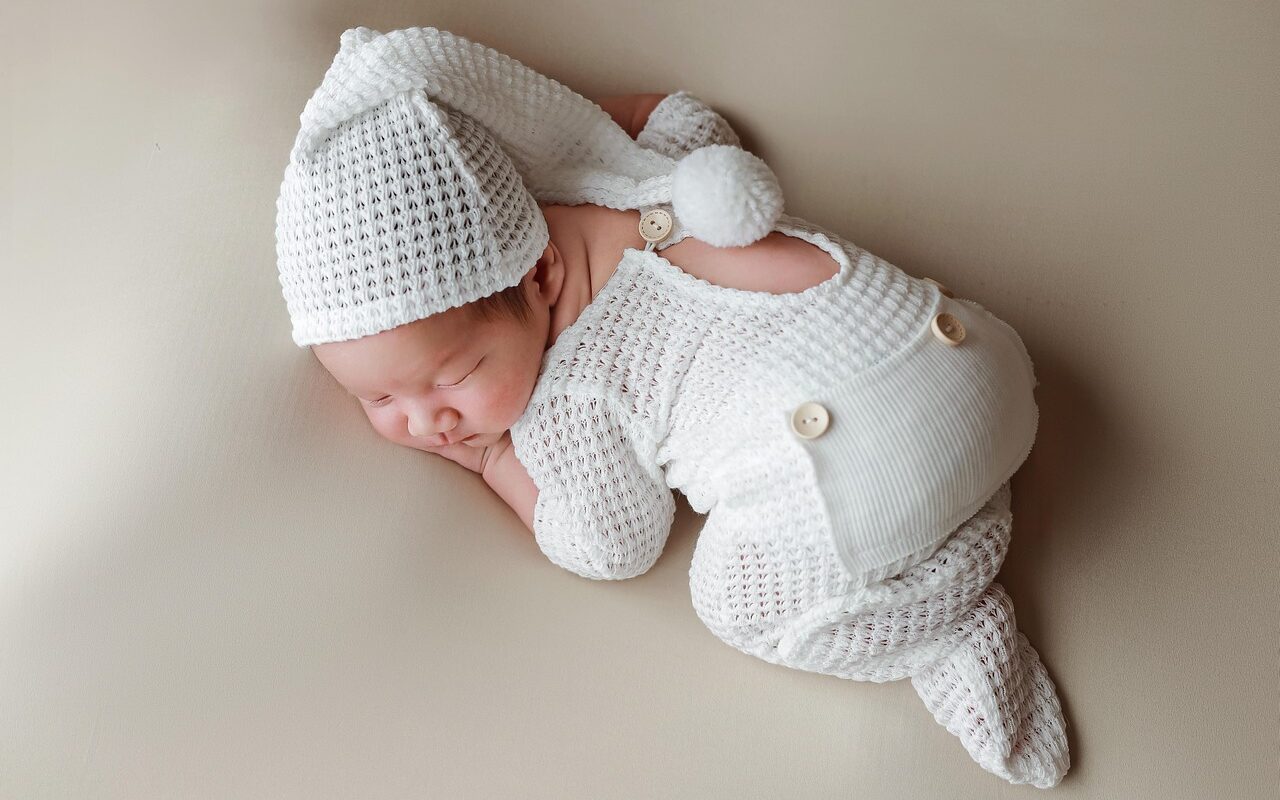Baby Sleep Guide: Everything You Need to Know (And Even More)
Are you having a hard time understanding your baby’s sleep patterns? You’re not the only one! Every baby is different, and the way they sleep can seem like a complete mystery. But don’t worry I’ve got you covered with a guide that’s easy to understand, practical, and, I would even say, fun.
Baby Sleep Basics (Spoiler Alert: One Thing Doesn’t Work for Everyone)
First things first, babies aren’t robots. Some sleep like little angels for many hours, while others act like nap time is a wrestling match. It’s totally normal for your baby’s sleep schedule to feel all mixed up. But here’s the most important rule: try to sleep when your baby sleeps. Seriously, forget about cleaning up or watching “social media” all the time. Your sleep is important too. Now, when it comes to feeding and sleeping, newborn babies will often fall asleep while they’re eating (it’s cute and it will happen). Just keep feeding them until they are finished or completely asleep. Also, don’t walk around the house very quietly while they are sleeping! Getting them used to a little bit of noise during the day (like the vacuum cleaner!) means they will be less likely to wake up at every little sound.

Getting Good at Night vs. Day (Yes, Babies Get Jet Lag Too)
Babies aren’t born knowing what time it is. Teaching them the difference between night and day can help set their body’s natural clock. Here’s how to start:
- During the day, keep the curtains open and don’t worry too much about noise.
- At night, keep things calm with dim lights and a quiet voice. Feed them, cuddle them, and put them back to bed without making it a playtime.
- Avoid changing diapers or playing with them in the very early morning unless you really need to!
Being Patience is very important here. Your baby will slowly learn that nighttime is for sleeping.
Safe Sleeping Place = Feeling Calm
For at least the first six months, keep your baby in the same room as you when they are sleeping. This really lowers the chance of sudden infant death syndrome (SIDS) and lets you watch them. Fun fact (or maybe not so fun, depending on how strong your arms are): In the first few weeks, your baby might only fall asleep while someone is holding them or in a baby carrier (sling). Just make sure you are using baby slings safely! And remember, this time when they want to be held a lot won’t last forever.
Making a Bedtime Plan for Your Little Sleeper
Do you want to make bedtime a little easier? A calm routine helps tell your baby that it’s time to relax and sleep. Try this simple bedtime routine:
- Bath time (a common way to help them calm down)
- Fresh cloths and a clean diaper
- A bedtime story (even babies can enjoy the soft sound of your voice)
- Make the lights dim and give them a goodnight kiss or hug
- A soft sound from a mobile
- Brushing their teeth if they have their little white teeth (yes, even babies need to have their teeth cared for!)
Doing the same things regularly is important, and as your baby gets older, you can keep changing the routine to fit their age and how much energy they have.

How Much Sleep Does Your Baby REALLY Need?
Here’s the important thing to know—for babies, how much sleep they need changes as they get older:
- Newborn babies: They might sleep up to 18 hours a day (lucky them!), but they wake up often to eat or get their diaper changed.
- 3–6 months: Some babies start to sleep for longer times at night, like 5 to 8 hours. Hooray!
- 6–12 months: They might not need to eat at night anymore, and some babies start sleeping about 15 hours total each day.
- 1-year-olds: Around 12–15 hours of sleep in total.
- 2-year-olds: Expect about 12–14 hours, including naps during the day.
- 3–5-year-olds: Around 12 hours, and some of the younger kids still take naps.
Remember, when babies are getting new teeth, are hungry, or are growing quickly, it can mess up their sleep patterns. You need to change things as needed, and know that every baby is different.
How to Survive Nights Without Sleep Without Going Crazy
Newborns will wake up many times in the first few months, making you very tired and needing coffee like it’s the only thing keeping you alive. Don’t be afraid to ask for help! Your partner can take care of nighttime feedings (with formula or breast milk in a bottle) or the early morning things. If you are doing it alone, ask a friend or family member to give you a break. Trust me, taking some time to nap or be by yourself can make a big difference when you are really tired.
What Happens When Sleep Patterns Change?
Babies grow. And that means how they sleep will change over time. Just when you think you’ve figured it out, a growth spurt, if they get sick, or when they get new teeth can cause problems. You need to be flexible and go with the changes even if you have to change their routine every few months.
Final Thoughts on Baby Sleep
Here’s the main point for parents who aren’t getting enough sleep: there’s no easy fix for perfect baby sleep, but you CAN make it easier with routines, being patience, and not expecting too much. If you still don’t know how to deal with a specific sleep problem, ask your health visitor or a doctor you trust who works with babies for advice. And remember, this time without much sleep won’t last forever (even if it feels like it will). Keep going, you are doing a great job even if you can barely remember your own name!
Bonus Tip to Get More People to Click: Share this guide with another tired parent who could use a laugh and some helpful tips about sleep. They will thank you later (once their kid finally falls asleep for a nap).


One thought on “Safe Baby Sleep & Better Nights: Your Guide to Routines, Needs & Tips”